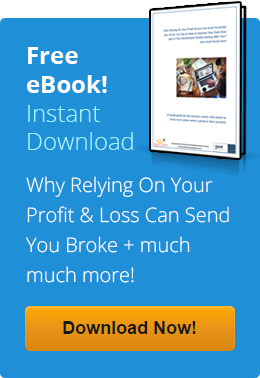Every business needs to keep records of its transactions and activities. Not only so you can effectively meet your taxation and compliance obligations but good record keeping is an essential resource to help you understand how your business is performing and to help you make the best business decisions.
Of course the most important reason for keeping good records is that it is a legal requirement. You must keep business records:
- For five years after they are prepared, obtained or the transaction is completed, whichever occurs latest
- In English or in a form that the Australian Taxation Office can access and understand in order to be able to work out the amount of tax you are liable to pay.
You will have to keep records longer if you use information from them in a later tax return e.g carry forward losses or for capital gains purposes.
Records can be issued or stored in either paper or electronic form.
Here are some of the records you must keep:
Income tax records
You must keep records of all your sales (income) and expenses to prepare your business activity statements (BAS) and annual income tax return, and to meet other tax obligations. You also need to keep year-end and bank records.
Records that all businesses need to keep are listed below.
Income and sales records
Records of all sales transactions – for example, invoices including tax invoices, receipt books, cash register tapes and records of cash sales.
 Expense or purchase records
Expense or purchase records
Records of all business expenses, including cash purchases. Records could include receipts, invoices including tax invoices, cheque book receipts, credit card vouchers and diaries to record small cash expenses. Records showing how you worked out any private use of something you purchased.
Year-end records
These include lists of creditors (who you owe money to) or debtors (who owe you money), and worksheets to calculate the decreasing value of your assets, also called ‘depreciating assets’, stocktake sheets and capital gains tax records.
Bank records
Documents you receive from the bank such as bank statements, loan documents and bank deposit books.
Other records you may need to keep
As well as general records, you may need to keep other records depending on your tax obligations or the type of expense. Other records you may need to keep are listed below.
Goods and services tax (GST) records
The main GST records you need to keep are tax invoices from your suppliers. Remember, you need a tax invoice to claim GST credits. You must keep any other document that records any adjustments, a decision or a calculation made for GST purposes.
Employees and contractors records
If you have employees or contractors, you will need to keep:
- tax file number (TFN) declaration forms or withholding declaration forms
- records of wages, allowances and other payments you make to them
- superannuation records, including payments you make and records that show you have met your superannuation obligations
- records of fringe benefits you provided
- copies of any contracts you have with contractors.
Fuel tax records
If you intend to claim fuel tax credits for your business, you must keep records that show that you:
- acquired the fuel
- used the fuel in your business
- applied the correct rate when calculating how much you could claim.
You must also keep records that show your business is carrying on activities that are eligible for fuel tax credits.
If you are claiming fuel tax credits of $300 or less in a financial year, you do not have to keep records of fuel purchases.
By law you must keep these records for at least five years, either on paper or electronically. They must be in English or in a form that can easily be converted.
Remember – you can also claim the cost of record keeping software and services as a business tax deduction.
For more information download our awkwardly titled FREE eBook Why Relying on Your Profit & Loss Report Can Send You Broke plus Ten (or 11) Tips on How to Improve Your Cash Flow plus Is Your Bookkeeper Really looking After You plus Much Much More!
If you’re thinking that your record keeping might not be up to scratch contact Great Perth Bookkeeping for friendly no obligation advice today!





Leave a Reply